The Eid al-Fitr holiday marking the end of the Islamic holy month of Ramadan is being celebrated by Muslims with family reunions, new clothes and sweet treats.
In Indonesia, the world’s most populous Muslim nation, nearly three quarters of people were travelling for the annual homecoming known locally as “mudik” that is always welcomed with excitement.
“Mudik is not just an annual ritual or tradition for us,” said civil servant Ridho Alfian, who lives in the Jakarta area and was travelling to the province of Lampung at the southern tip of Sumatra. “This is a right moment to reconnect, like recharging energy that has been drained almost a year away from home.”
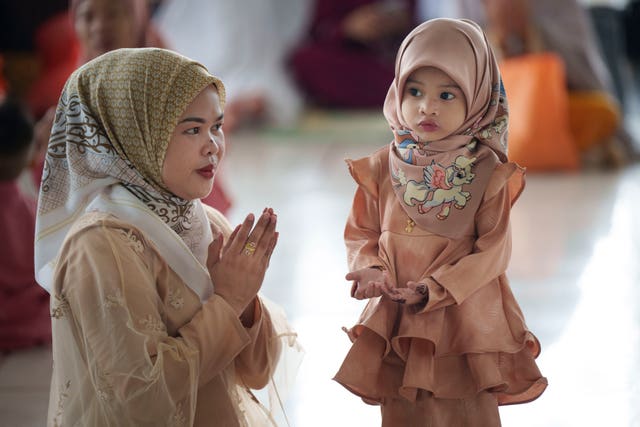
Before the Eid al-Fitr holiday, markets teemed with shoppers buying clothes, shoes and sweets.
People poured out of major cities to return to villages to celebrate the holiday with their loved ones. Flights were overbooked and anxious relatives weighed down with boxes of gifts formed long lines at bus and train stations for the journey.
For Arini Dewi, Eid al-Fitr is a day of victory from economic difficulties during Ramadan.
“I’m happy in celebrating Eid holiday despite the surge in food prices,” said the mother of two.
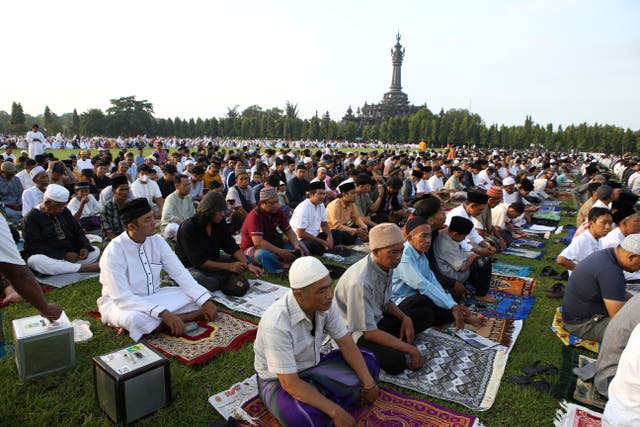
Former vice president Jusuf Kalla was among Jakarta residents offering prayers at the Al Azhar mosque.
“Let’s celebrate Eid al-Fitr as a day of victory from many difficulties… of course there are many social problems during fasting month of Ramadan, but we can overcome it with faith and piety,” he said.
On the eve of Eid al-Fitr, Jakarta residents set off fireworks on streets that were mostly empty after city residents travelled home.
On Wednesday morning, Muslims joined communal prayers shoulder-to-shoulder on the streets and inside mosques. Jakarta’s Istiqlal Grand Mosque, the largest in Southeast Asia, was flooded with devotees offering the morning prayers.
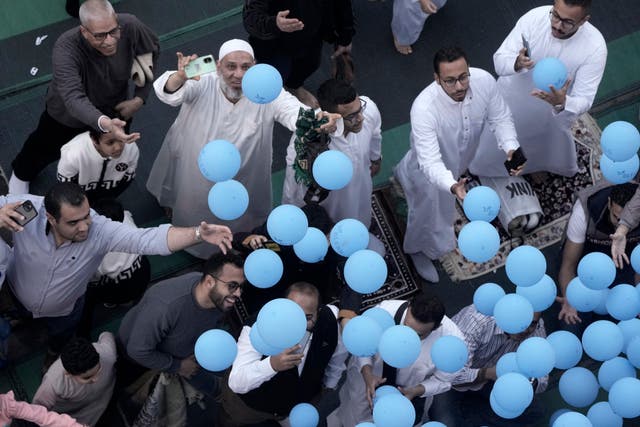
Preachers in their sermons called on people to pray for Muslims in Gaza who were suffering after six months of war.
“This is the time for Muslims and non-Muslims to show humanitarian solidarity, because the conflict in Gaza is not a religious war, but a humanitarian problem,” said Jimly Asshiddiqie, who chairs the advisory board of the Indonesian Mosque Council.
In Pakistan, authorities have deployed more than 100,000 police and paramilitary forces to keep security at mosques and marketplaces. People were shopping as usual on Tuesday, with women buying bangles, jewellery and clothes for themselves and their children.
In Malaysia, ethnic Malay Muslims performed morning prayers at mosques nationwide just weeks after socks printed with the word “Allah” at a convenience store chain sparked a furore. Many found it offensive to associate the word with feet or for it to be used inappropriately.
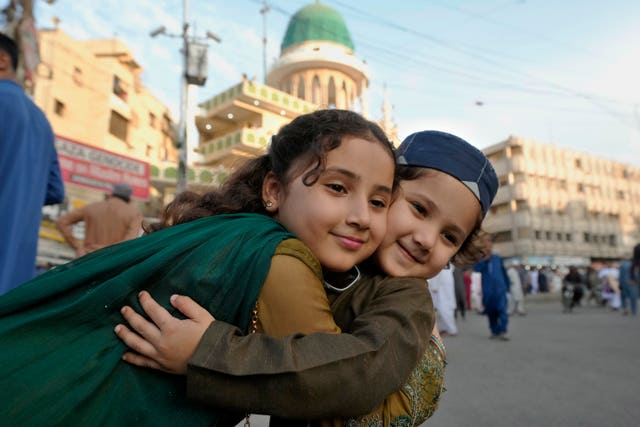
Malaysia’s Prime Minister, Anwar Ibrahim, called for unity and reconciliation in his message on the eve of Eid, saying no groups should be sidelined based on religion or any other reason.
“We must be firm, resolute and unwavering in our commitment to foster values and build a dignified nation,” he said. “However, let us not take this as a licence or opportunity to insult, undermine, or damage the cultural practices and way of life of others.”
The owners of the KK Mart chain and representatives from one of its suppliers were charged with offending the religious feelings of Muslims.
KK Mart Group said the supplier sent items the company had not agreed to stock. The supply company founder apologised for being careless in the inspection of the imported items.
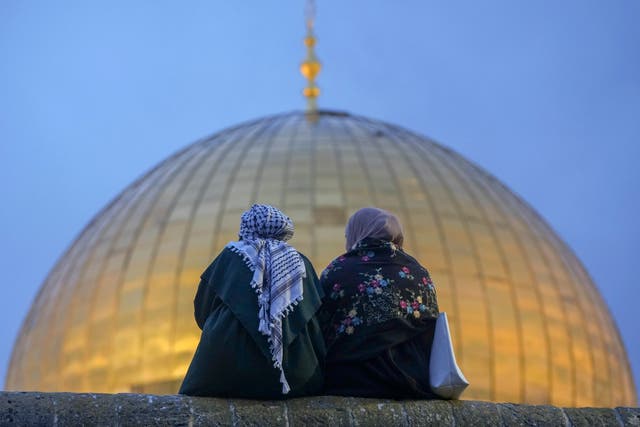
In Turkey, thousands of worshippers gathered at the Aya Sofya Mosque in Istanbul for morning Eid prayers, some carrying Palestinian flags and chanting slogans in support of people in Gaza.
Many laid their prayer rugs in the square in front of the former Byzantine cathedral, which was reconverted to a mosque four years ago, as space inside quickly filled.
In a holiday message, Turkish President Recep Tayyip Erdogan sent support to Gaza, which he called a “bleeding wound on the conscience of humanity”.
“I hope that the Eid will lead to peace, tranquillity and wellbeing for our country, our nation, the Islamic world and all humanity,” he added.
The war in Gaza was also the focus of prayers at a mosque in the Kenyan capital, Nairobi.
“We should not forget our brothers and sisters in Palestine,” Imam Abdulrahman Musa said.




Comments: Our rules
We want our comments to be a lively and valuable part of our community - a place where readers can debate and engage with the most important local issues. The ability to comment on our stories is a privilege, not a right, however, and that privilege may be withdrawn if it is abused or misused.
Please report any comments that break our rules.
Read the rules hereLast Updated:
Report this comment Cancel